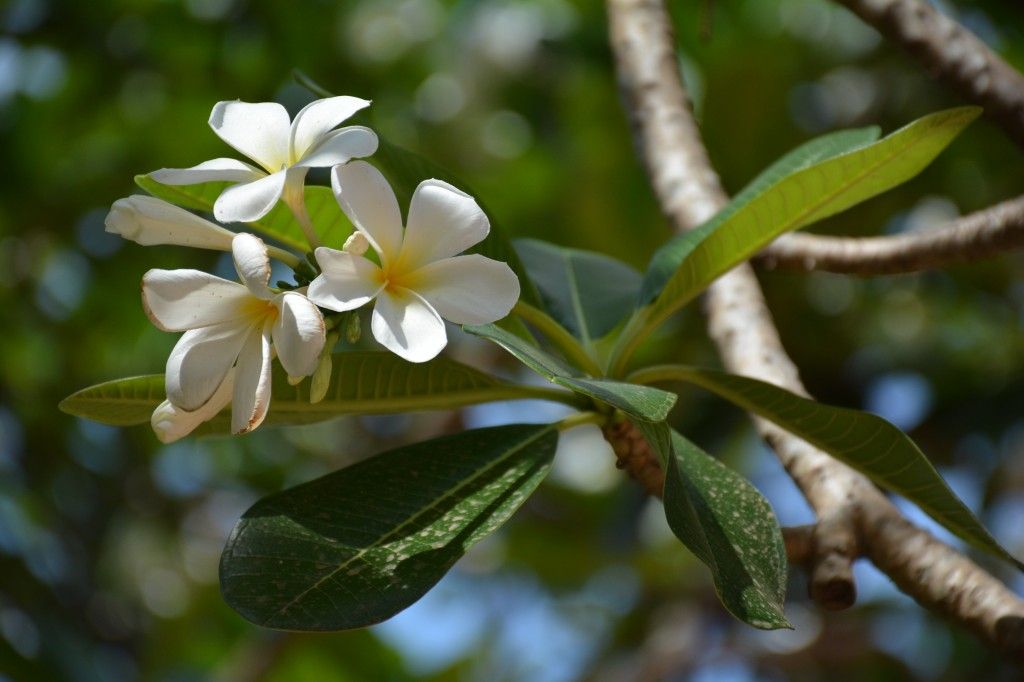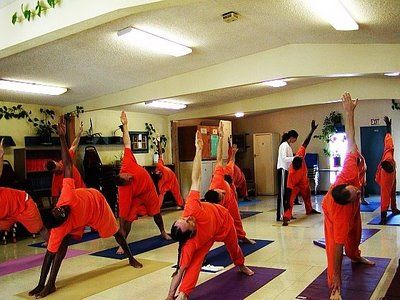Tag Archives: peace
Join us in Prayer for Peace in Syria
Pope Francis has asked citizens to pray and fast on Saturday, September 7th. One day in prayer, thoughts and intentional sacrifice for peace. That is the definition of a lucid practice. And for those of us that believe that our collective thoughts and consciousness (yes all 7 billion of us) can change the world, then this lucid practice might make a difference. A big difference.
Here is Pope Francis’ prayer and call to action. I love this, “each person, including our fellow Christians, followers of other religions and all men of good will, to participate in whatever way they can in this initiative…” Gone are the exclusive days of the crusade where Christians were so focused on converting “non believers,” we are living in a time of inclusion where the Pope has called all men, of all faiths to join in this collective conscious effort.
I love how Pope Francis tells us to do what we can and not insist that we fast or sacrifice in the exact way in which he suggests or for a specific length of time. Whoever you are, wherever you are, and whatever you believe in, join together and do what you can to help.
“May the plea for peace rise up and touch the heart of everyone so that they may lay down their weapons and let themselves be led by the desire for peace…
To this end, brothers and sisters, I have decided to proclaim for the whole Church on September 7th, the vigil of the birth of Mary, Queen of Peace, a day of fasting and prayer for peace in Syria, the Middle East, and throughout the world. I also invite each person, including our fellow Christians, followers of other religions and all men of good will, to participate in whatever way they can in this initiative…”
Pope Francis, September 1, 2013
Thank you Deacon Bob, for the link to this beautiful prayer!
Soon to be 50 Year Anniversary: MLK Jr’s I Have A Dream Speech – Full Text
I am happy to join with you today in what will go down in history as the greatest demonstration for freedom in the history of our nation.
Five score years ago, a great American, in whose symbolic shadow we stand signed the Emancipation Proclamation. This momentous decree came as a great beacon light of hope to millions of Negro slaves who had been seared in the flames of withering injustice. It came as a joyous daybreak to end the long night of captivity.
But one hundred years later, we must face the tragic fact that the Negro is still not free. One hundred years later, the life of the Negro is still sadly crippled by the manacles of segregation and the chains of discrimination. One hundred years later, the Negro lives on a lonely island of poverty in the midst of a vast ocean of material prosperity. One hundred years later, the Negro is still languishing in the corners of American society and finds himself an exile in his own land. So we have come here today to dramatize an appalling condition.
In a sense we have come to our nation’s capital to cash a check. When the architects of our republic wrote the magnificent words of the Constitution and the Declaration of Independence, they were signing a promissory note to which every American was to fall heir. This note was a promise that all men would be guaranteed the inalienable rights of life, liberty, and the pursuit of happiness.
It is obvious today that America has defaulted on this promissory note insofar as her citizens of color are concerned. Instead of honoring this sacred obligation, America has given the Negro people a bad check which has come back marked “insufficient funds.” But we refuse to believe that the bank of justice is bankrupt. We refuse to believe that there are insufficient funds in the great vaults of opportunity of this nation. So we have come to cash this check — a check that will give us upon demand the riches of freedom and the security of justice. We have also come to this hallowed spot to remind America of the fierce urgency of now. This is no time to engage in the luxury of cooling off or to take the tranquilizing drug of gradualism. Now is the time to rise from the dark and desolate valley of segregation to the sunlit path of racial justice. Now is the time to open the doors of opportunity to all of God’s children. Now is the time to lift our nation from the quicksands of racial injustice to the solid rock of brotherhood.
It would be fatal for the nation to overlook the urgency of the moment and to underestimate the determination of the Negro. This sweltering summer of the Negro’s legitimate discontent will not pass until there is an invigorating autumn of freedom and equality. Nineteen sixty-three is not an end, but a beginning. Those who hope that the Negro needed to blow off steam and will now be content will have a rude awakening if the nation returns to business as usual. There will be neither rest nor tranquility in America until the Negro is granted his citizenship rights. The whirlwinds of revolt will continue to shake the foundations of our nation until the bright day of justice emerges.
But there is something that I must say to my people who stand on the warm threshold which leads into the palace of justice. In the process of gaining our rightful place we must not be guilty of wrongful deeds. Let us not seek to satisfy our thirst for freedom by drinking from the cup of
We must forever conduct our struggle on the high plane of dignity and discipline. We must not allow our creative protest to degenerate into physical violence. Again and again we must rise to the majestic heights of meeting physical force with soul force. The marvelous new militancy which has engulfed the Negro community must not lead us to distrust of all white people, for many of our white brothers, as evidenced by their presence here today, have come to realize that their destiny is tied up with our destiny and their freedom is inextricably bound to our freedom. We cannot walk alone.
And as we walk, we must make the pledge that we shall march ahead. We cannot turn back. There are those who are asking the devotees of civil rights, “When will you be satisfied?” We can never be satisfied as long as our bodies, heavy with the fatigue of travel, cannot gain lodging in the motels of the highways and the hotels of the cities. We cannot be satisfied as long as the Negro’s basic mobility is from a smaller ghetto to a larger one. We can never be satisfied as long as a Negro in Mississippi cannot vote and a Negro in New York believes he has nothing for which to vote. No, no, we are not satisfied, and we will not be satisfied until justice rolls down like waters and righteousness like a mighty stream.
I am not unmindful that some of you have come here out of great trials and tribulations. Some of you have come fresh from narrow cells. Some of you have come from areas where your quest for freedom left you battered by the storms of persecution and staggered by the winds of police brutality. You have been the veterans of creative suffering. Continue to work with the faith that unearned suffering is redemptive.
Go back to Mississippi, go back to Alabama, go back to Georgia, go back to Louisiana, go back to the slums and ghettos of our northern cities, knowing that somehow this situation can and will be changed. Let us not wallow in the valley of despair.
I say to you today, my friends, that in spite of the difficulties and frustrations of the moment, I still have a dream. It is a dream deeply rooted in the American dream.
I have a dream that one day this nation will rise up and live out the true meaning of its creed: “We hold these truths to be self-evident: that all men are created equal.”
I have a dream that one day on the red hills of Georgia the sons of former slaves and the sons of former slave owners will be able to sit down together at a table of brotherhood.
I have a dream that one day even the state of Mississippi, a desert state, sweltering with the heat of injustice and oppression, will be transformed into an oasis of freedom and justice.
I have a dream that my four children will one day live in a nation where they will not be judged by the color of their skin but by the content of their character.
I have a dream today.
I have a dream that one day the state of Alabama, whose governor’s lips are presently dripping with the words of interposition and nullification, will be transformed into a situation where little black boys and black girls will be able to join hands with little white boys and white girls and walk together as sisters and brothers.
I have a dream today.
I have a dream that one day every valley shall be exalted, every hill and mountain shall be made low, the rough places will be made plain, and the crooked places will be made straight, and the glory of the Lord shall be revealed, and all flesh shall see it together.
This is our hope. This is the faith with which I return to the South. With this faith we will be able to hew out of the mountain of despair a stone of hope. With this faith we will be able to transform the jangling discords of our nation into a beautiful symphony of brotherhood. With this faith we will be able to work together, to pray together, to struggle together, to go to jail together, to stand up for freedom together, knowing that we will be free one day.
This will be the day when all of God’s children will be able to sing with a new meaning, “My country, ’tis of thee, sweet land of liberty, of thee I sing. Land where my fathers died, land of the pilgrim’s pride, from every mountainside, let freedom ring.”
And if America is to be a great nation this must become true. So let freedom ring from the prodigious hilltops of New Hampshire. Let freedom ring from the mighty mountains of New York. Let freedom ring from the heightening Alleghenies of Pennsylvania!
Let freedom ring from the snowcapped Rockies of Colorado!
Let freedom ring from the curvaceous slopes of California!
But not only that; let freedom ring from Stone Mountain of Georgia!
Let freedom ring from Lookout Mountain of Tennessee!
Let freedom ring from every hill and molehill of Mississippi. From every mountainside, let freedom ring.
And when this happens, when we allow freedom to ring, when we let it ring from every village and every hamlet, from every state and every city, we will be able to speed up that day when all of God’s children, black men and white men, Jews and Gentiles, Protestants and Catholics, will be able to join hands and sing in the words of the old Negro spiritual, “Free at last! free at last! thank God Almighty, we are free at last!”
What is Asteya?
What is Asteya?
This post is intended to answer the questions, “What is Asteya?” and “How can I utilize the principles of Asteya in my every day life?”
Yoga is an eight limbed path that could help you cultivate more awareness about your personal happiness. As we have talked about in previous posts, Yama, which are ethical disciplines, is the first limb of yoga. Today we will look at the third yama, asteya. We have previously written about the first and second yamas, ahimsa, and satya.
Asteya (a=not, steya= stealing) means non-stealing. We were taught from our teacher, Rory Trollen, that asteya is a pure acceptance of your life for who you are and what you have.
Many people desire to have and enjoy what other people have. This craving or want drives some to live negatively and pursue negative deeds. Asteya gently guides us to be content with what we have.
Asteya also leads us to not abuse anything or anyone. When you commit to meeting with someone, hold your end of the bargain and meet them at that specific time. Do not over schedule when you cannot meet your word. Let asteya guide us to not misuse others. Let it help us have more trustworthy relationships.
Our teacher told us to practice not stealing others peoples energy and to reduce all jealousy for anything or anyone. Accept what is. Never want or need anybody else’s possessions or loved ones.
Pure yogis believe that one should reduce his or her needs to a physical minimum believing that if one gathers things he does not really need, he is a thief. They believe that while most men crave for wealth, power, fame or enjoyment, the yogi has one craving and that is to love God.
You do not need to be a devout yogi to follow these disciplines. Reducing wants and needs could be beneficial for many different reasons. Asteya can gently guide you to wanting less. It may help you from a financial stand point or help you be a better friend. We want to use these disciplines to help us be easier, nicer people. If we are all at each other’s necks then the vision of bliss and peace cannot be fulfilled.
What is Asteya to you?
Study: Yoga Helps Incarcerated
One of the greatest benefits of yoga practice is that it trains us to stay calm when emotions and physical sensations get intense. This type of training not only allows our negative emotions to pass more quickly, but it encourages us not to impulsively act out from a place of anger, fear, or hostility. So, could this aspect of yoga practice be helpful to those who are incarcerated? A new study says yes.
In a recent 10-week study funded by the Prison Phoenix Trust, an Oxford, England, based charity that offers yoga classes in prisons, psychologists assessed the benefits of yoga for prisoners. Study leaders Dr. Amy Bilderbeck and Dr. Miguel Farias, who are Oxford University researchers in the Department of Experimental Psychology and Psychiatry, found that prisoners who took one 90-minute yoga class each week improved in mood, had a decrease in stress, and were able to curb impulsivity. This last finding indicates that yoga may not only be a way of helping inmates deal with the stress of incarceration, but that offenders may have a better shot of resisting the temptation to commit crime again once they are back out in the world.
“Almost half of adult prisoners return to prison within a year, having created more victims of crime,” Sam Settle, director of the Prison Phoenix Trust, says in an article posted on the India Educational Diary website. “So finding ways to offset the damaging effects of prison life is essential for us as a society. This research confirms what prisoners have been consistently telling the Prison Phoenix Trust for 25 years: yoga and meditation help them feel better, make better decisions, and develop the capacity to think before acting–all essential in leading positive, crime-free lives once back in the community.”
Before and after the yoga course, all the prisoners completed questionnaires measuring mood, stress, impulsivity, and mental wellbeing. The results of the study were printed in the Journal of Psychiatric Research.
“We’re not saying that organizing a weekly yoga session in a prison is going to suddenly turn prisons into calm and serene places, stop all aggression and reduce reoffending rates,” said Bilderbeck, who is also a yoga practitioner. “But what we do see are indications that this relatively cheap, simple option might have multiple benefits for prisoners’ wellbeing and possibly aid in managing the burden of mental health problems in prisons.”
7/12 Quote: Aldous Huxley
“My father considered a walk among the mountains as the equivalent of churchgoing.”
~Aldous Huxley



